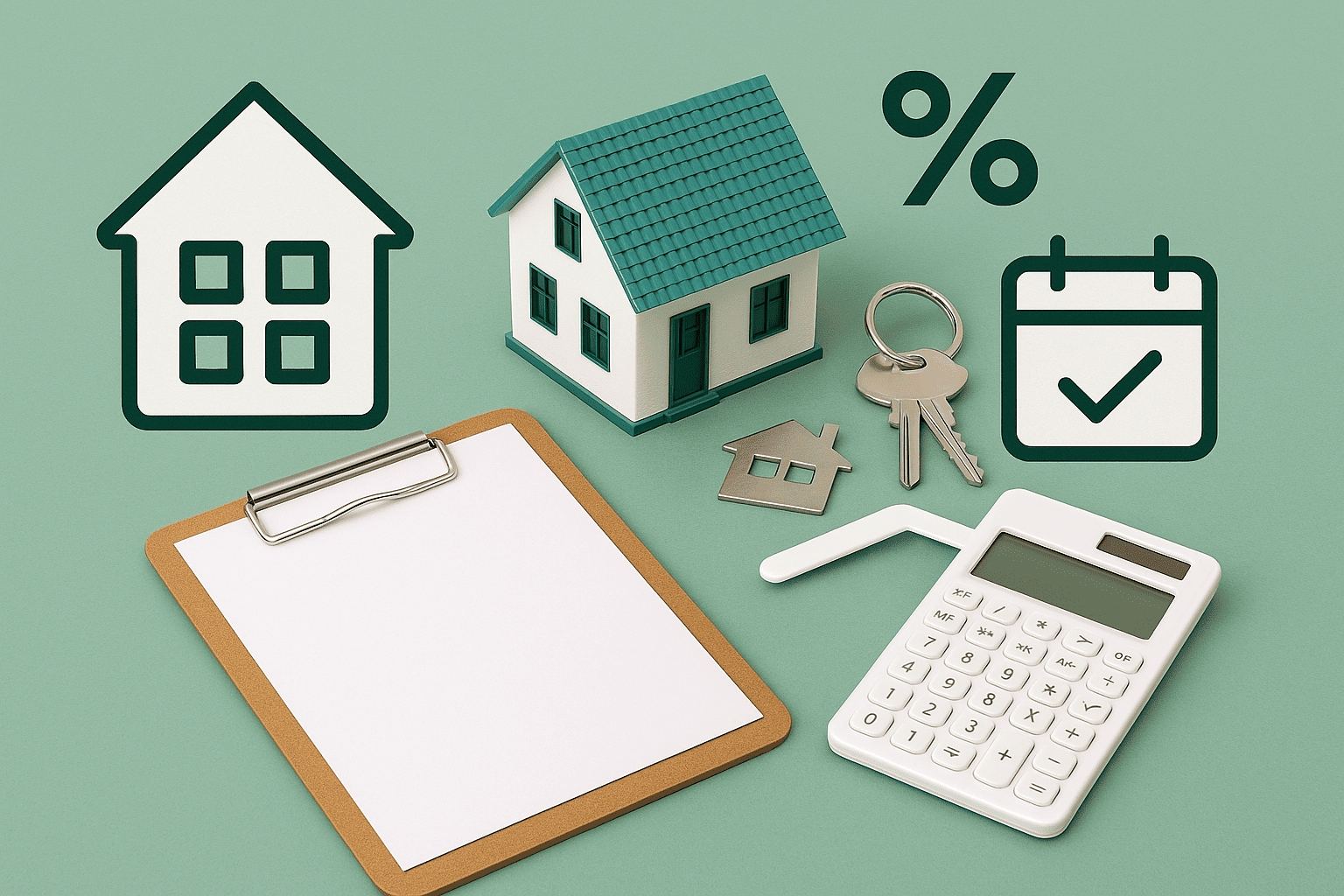
An interest-only mortgage is a type of mortgage where you only pay interest during the term. You do not repay any of the debt during this period. You pay the full amount in one payment after the term.
In the past, this type of mortgage was quite popular because of the low monthly costs. However, today it is not as popular since there are stricter rules. Taking out a fully interest-only mortgage is not possible anymore. You can borrow 50% of the purchase price with this mortgage. You can combine it with an annuity or linear mortgage.
How does an interest-only mortgage work?
You pay the same amount of interest on the loan every month. At the end of the term, you repay the full amount all at once. You can do this with savings, an inheritance, or by selling your current house.
Example:
You have a loan of €150,000, the interest rate is 3%, and the term is 30 years.
- Annual interest: €150,000 x 3% = €4,500.
- Monthly interest: €4,500 ÷ 12 months = €375 per month.
The amount does not change, because you are not repaying any of the debt. If the interest rate changes, the amount changes.
Combining with other mortgages
You are not allowed to finance 100% of your home's value interest-only. That's why some people decide to combine this mortgage with an annuity or linear mortgage.
Example:
- You borrow 50% of your home's value interest-only. For this part, you only pay interest.
- You repay the remaining amount each month with an annuity or linear mortgage.
Combining mortgages results in lower monthly payments. Remember that you still owe the amount for the interest-only mortgage at the end of the term. It is also important to note that you cannot deduct mortgage interest for the interest-only pa
What are the advantages of an interest-only mortgage?
- Low monthly costs: You only pay interest and no repayment during the term.
- More financial flexibility in the short term: This can be useful if your income is temporarily lower.
- Flexibility: You can decide when you repay the debt, as long as the full amount is paid off by the end of the term.
What are the disadvantages of an interest-only mortgage?
- Debt remains unchanged: This means that you do not build up any equity.
- Higher risk if your home loses value: If your home decreases in value, your debt might be higher than the market value. This can lead to problems paying the debt off.
- Large repayment required: By the end you owe the lender a large amount of money.
Who is an interest-only mortgage suitable for?
This mortgage is suitable for people who:
- Have significant assets and can easily repay the debt at the end of the term. For example, if you plan to sell the property or if you have more than enough savings.
- Fall under transitional rules with an existing mortgage. Before 2013, it was allowed to finance 100% of the home with an interest-only mortgage.